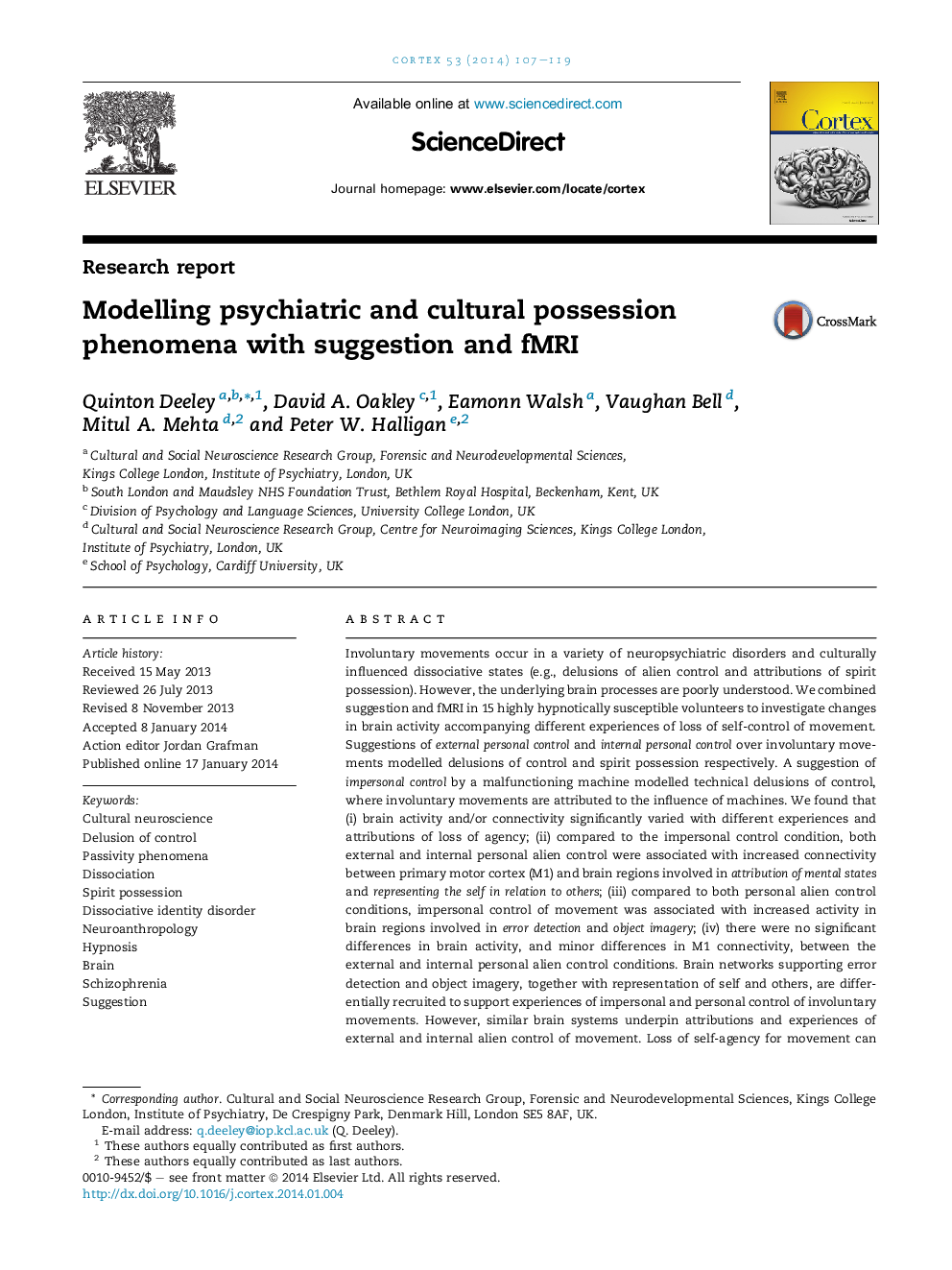| کد مقاله | کد نشریه | سال انتشار | مقاله انگلیسی | نسخه تمام متن |
|---|---|---|---|---|
| 942046 | 1475479 | 2014 | 13 صفحه PDF | دانلود رایگان |

Involuntary movements occur in a variety of neuropsychiatric disorders and culturally influenced dissociative states (e.g., delusions of alien control and attributions of spirit possession). However, the underlying brain processes are poorly understood. We combined suggestion and fMRI in 15 highly hypnotically susceptible volunteers to investigate changes in brain activity accompanying different experiences of loss of self-control of movement. Suggestions of external personal control and internal personal control over involuntary movements modelled delusions of control and spirit possession respectively. A suggestion of impersonal control by a malfunctioning machine modelled technical delusions of control, where involuntary movements are attributed to the influence of machines. We found that (i) brain activity and/or connectivity significantly varied with different experiences and attributions of loss of agency; (ii) compared to the impersonal control condition, both external and internal personal alien control were associated with increased connectivity between primary motor cortex (M1) and brain regions involved in attribution of mental states and representing the self in relation to others; (iii) compared to both personal alien control conditions, impersonal control of movement was associated with increased activity in brain regions involved in error detection and object imagery; (iv) there were no significant differences in brain activity, and minor differences in M1 connectivity, between the external and internal personal alien control conditions. Brain networks supporting error detection and object imagery, together with representation of self and others, are differentially recruited to support experiences of impersonal and personal control of involuntary movements. However, similar brain systems underpin attributions and experiences of external and internal alien control of movement. Loss of self-agency for movement can therefore accompany different kinds of experience of alien control supported by distinct brain mechanisms. These findings caution against generalization about single cognitive processes or brain systems underpinning different experiences of loss of self-control of movement.
Journal: Cortex - Volume 53, April 2014, Pages 107–119